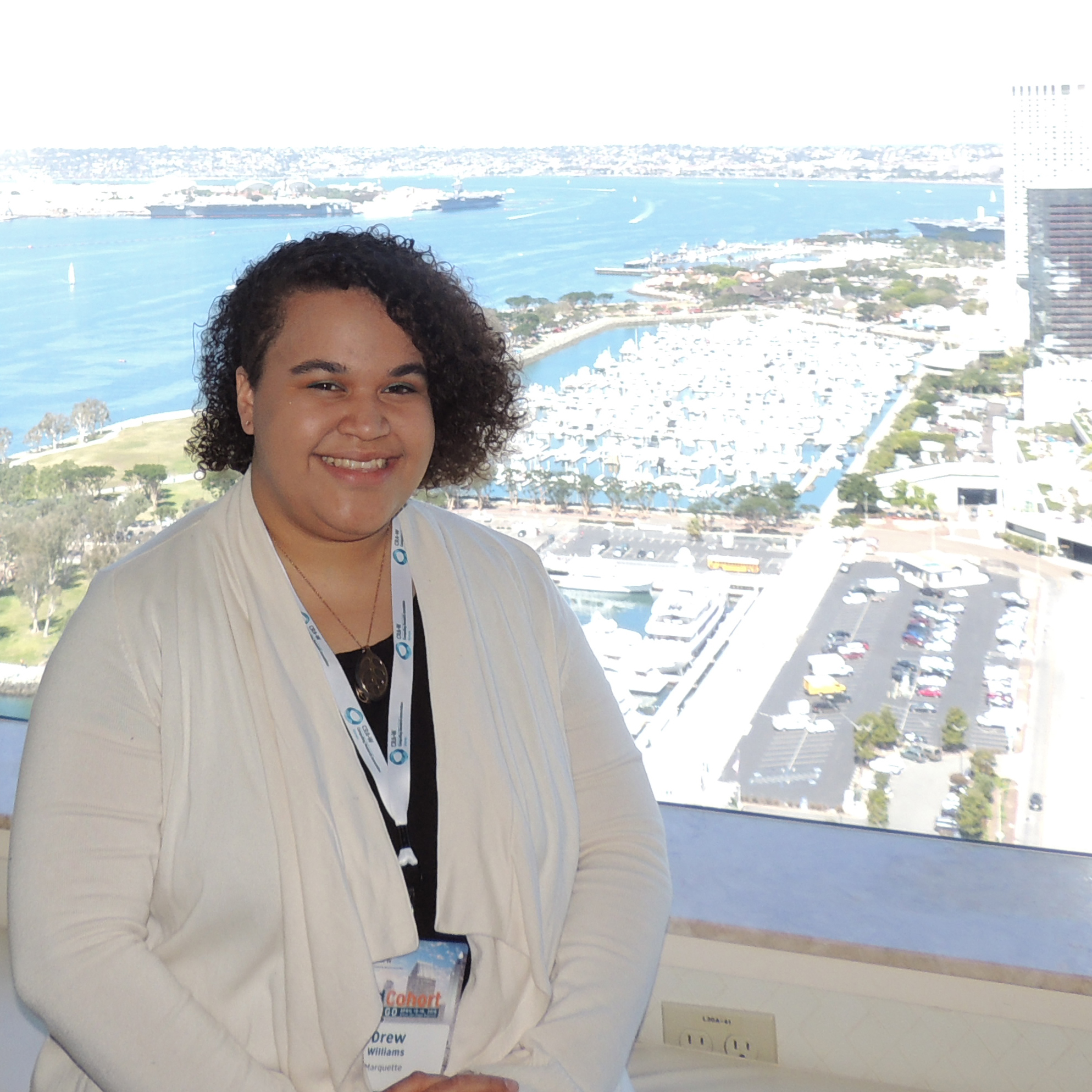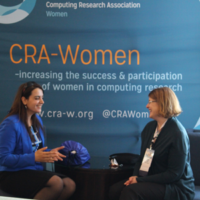Profiles in Computing: Drew Williams
By Shar Steed, CRA Communications Specialist
 This year’s Graduate Cohort Workshop (Grad Cohort), organized by CRA’s Committee on the Status of Women in Computing Research (CRA-W) brought together more than 550 female graduate students who were excited to learn from senior researchers about how to succeed in graduate school and beyond. I spoke with Drew Williams, one of the participants, to find out more about her experiences as a graduate student in computing.
This year’s Graduate Cohort Workshop (Grad Cohort), organized by CRA’s Committee on the Status of Women in Computing Research (CRA-W) brought together more than 550 female graduate students who were excited to learn from senior researchers about how to succeed in graduate school and beyond. I spoke with Drew Williams, one of the participants, to find out more about her experiences as a graduate student in computing.
An early love of science fiction is what initially lured Drew to a career in STEM. Her fascination with outer space and the future, recurrent themes in science fiction, inspired her to study astronomy and become a physics major. Although she didn’t take any high school computer science courses, she always enjoyed tinkering with computer programs on her own. She decided in college to take a coding class and “really loved it.” Drew soon changed her major to computer science because she wanted to be part of the movement that brings to life the technologies we dream about in science fiction.
Drew earned her Bachelor’s degree in computer science and was left feeling like she wanted to learn more before joining the workforce. So she entered a Master’s program at Marquette University. In her first semester, she built a security system for a software engineering class, which attracted the attention of her professor, Dr. Sheikh Iqbal Ahamed, the director of the Ubicomp Lab at Marquette. After seeing Drew’s work, he immediately asked her, “Why are you not doing research?”
Drew said, “I had no answer, because I had never really considered a research path.” He later invited her to join his research lab and encouraged her to apply to the Ph.D. program, which she said was “perfect” advice. Drew is now thoroughly enjoying her studies and research in the Ph.D. program at Marquette, where she gets to work on interesting, futuristic topics. Her current research is specifically on human-computer interaction, and developing accessible interfaces. “I figure that if we develop new and useful technology, it’s very important that it’s usable by the largest number of people possible!”
In fact the biggest obstacle Drew is facing now is learning how to narrow down the focus for her dissertation work. She described herself as having “shiny object syndrome.” There are so many areas of computer science that she loves, the hardest part is picking what to focus on. Fortunately for her, several sessions at Grad Cohort addressed this very issue. “There are some really great sessions here on picking your research topic, and it was perfect. It was exactly what I needed to hear.”
Drew’s experience is similar to many undergraduate students who are unfamiliar with research. Participating in guided research experiences, like CRA-W’s Collaborative Research Experience Program, increases students’ interest in research careers and advanced education, according to infographics from CRA’s Center for Evaluating the Research Pipeline.
Seeing the real world application of ideas as opposed to abstract topics may also be part of what encourages students’ interest in research. For Drew, a hands on project using Arduino in a computer music class, helped solidify her interest in computing research. “All of a sudden I was able to see a light turn on or some motor move when I programmed, and it was really satisfying.”
Drew loves computer science so much that even in her spare time, she works on computing projects on the side. She enjoys hardware hacking, which is not related to her academic research, and taking apart toys and using Arduinos to see if she can make them work in new and interesting ways. In addition to these activities, Drew also likes to draw. Pun intended.
In her current Ph.D. work, Drew has started to make sci-fi fantasy ideas a reality through computer science. And she hasn’t stopped loving it.
Part of the mission of the Computing Research Association (CRA) is to mentor and cultivate the talent development of computing researchers at all levels. Several programs led by the Committee on the Status of Women in Computing Research (CRA-W) focus on increasing gender diversity in computing. This column, “Profiles in Computing,” showcases successful individuals in computing, who donate their time and energy to mentoring future generations and strengthening the community of computing researchers through CRA-W initiatives.



